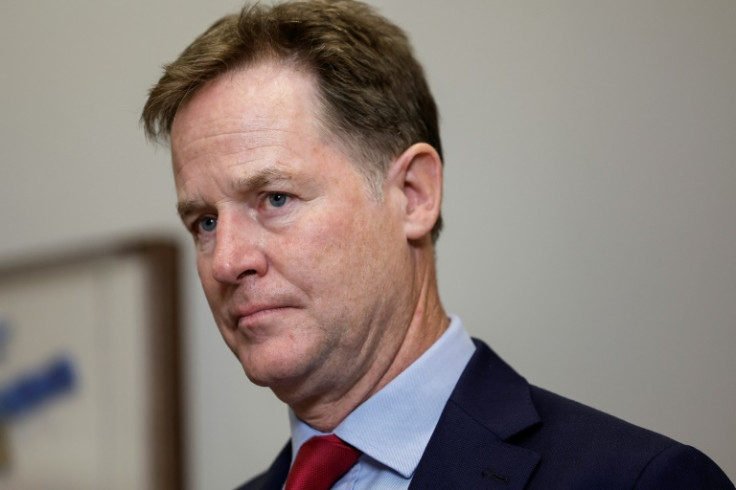
Meta on Tuesday said fears that artificial intelligence would unleash a torrent of misinformation to deceive voters around the world did not come true as elections played out around the world this year.
Defenses against deceptive influence campaigns at the networking giant's platform held firm, with no evidence that such coordinated efforts got much attention online, Meta president of global affairs Nick Clegg told reporters.
"I don't think the use of generative AI was a particularly effective tool for them to evade our trip wires," Clegg said of those behind coordinated disinformation campaigns.
"The delta between what was expected and what appeared is quite significant."
Meta says that most of the cover influence operations it has disrupted in recent years were carried out by actors from Russia, Iran and China.
Meta has no intent of lowering its guard, however, since generative AI tools are expected to become more sophisticated and more prevalent.
Clegg referred to 2024 as the biggest election year ever, with some 2 billion people estimated to have gone to the polls in scores of countries around the world.
"People were understandably concerned about the potential impact that generative AI would have on elections during the course of this year," Clegg said during a briefing with journalists.
"There were all sorts of warnings about the potential risks of things like widespread deep fakes and AI enabled disinformation campaigns."
Preventing the malicious use of generative AI in elections became an industry-wide effort, according to Clegg.
Clegg said he was not privy to whether Meta chief executive Mark Zuckerberg and president-elect Donald Trump discussed the tech platform's content moderation policies, when Zuckerberg was invited to Trump's Florida resort last week.
Trump has been critical of Meta, accusing the platform of censoring politically conservative viewpoints.
"Mark is very keen to play an active role in the debates that any administration needs to have about maintaining America's leadership in the technological sphere...and particularly the pivotal role that AI will play in that area," Clegg said.
Clegg added that hindsight has led Meta to conclude that it "overdid" content moderation during the Covid-19 pandemic and that the tech company is "redoubling" efforts to improve the precision with which it targets content for removal based on its policies.
"Our content rules evolve and change all the time," Clegg said.
"We will definitely continue to work on all of that, mindful of the fact that we're never going to get it perfectly right and to everybody's satisfaction."







